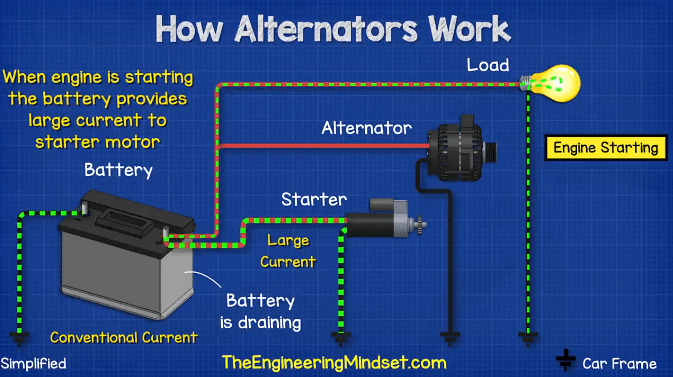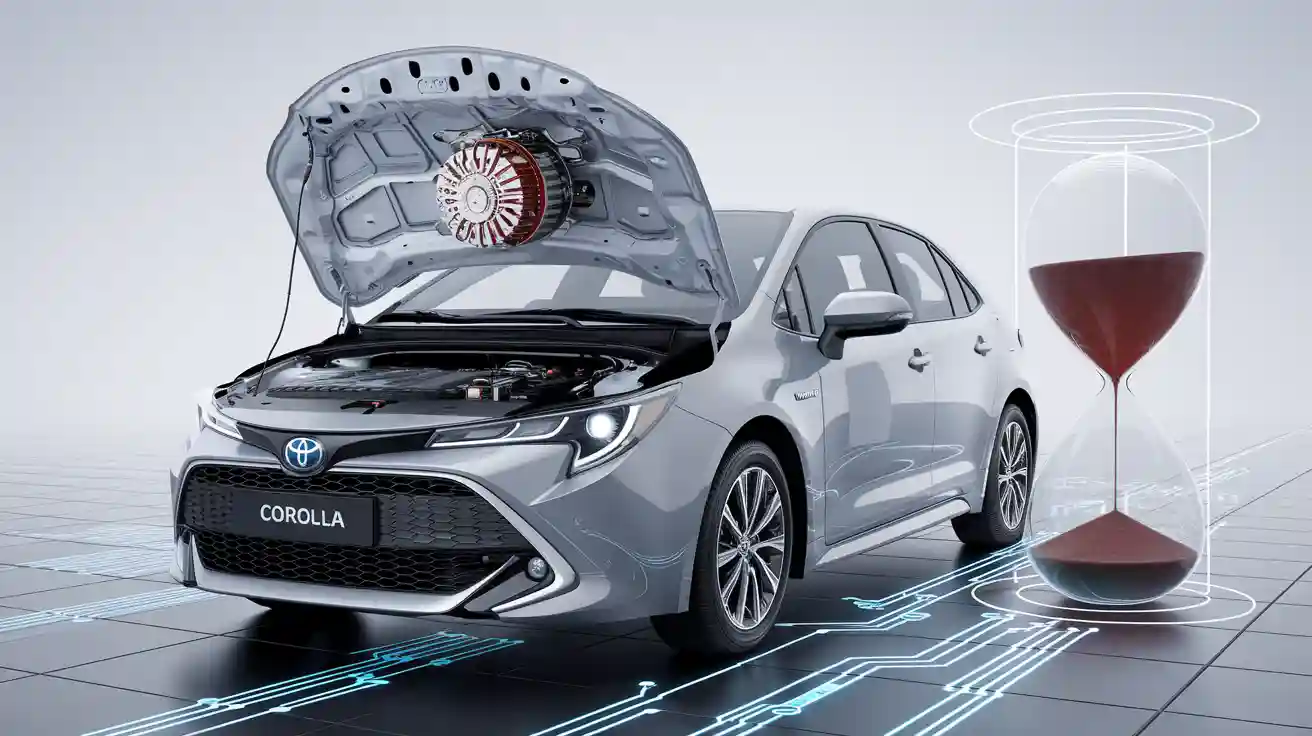
If you have a Toyota Corolla, the alternator lifespan typically lasts about eight years or between 80,000 and 150,000 miles. Some Toyota alternators have an even longer alternator lifespan, sometimes exceeding 200,000 miles. The alternator helps your car's electrical parts work and charges the battery while you drive.
The alternator gives power to things like headlights and the radio.
It uses belts and hoses to help your Toyota run well.
Checking it often helps you find problems before the battery fails or you get stuck.
Understanding the alternator lifespan helps you plan for repairs and avoid surprise breakdowns.
Alternator Lifespan
How Long Does an Alternator Last
According to the AAA Vehicle Component Lifespan Guide (2022):most alternators last between 80,000 and 150,000 miles. This is about 7 or 8 years for most people. Some Toyota alternators can last even longer, sometimes over 200,000 miles. If you have an original equipment (OE) alternator, it might reach up to 220,000 miles. The average alternator lifespan for a Toyota Corolla is about 135,000 miles.
How long your alternator lasts depends on how you drive and care for your car. If you take short trips or drive in bad weather, the alternator may wear out faster. Doing regular maintenance helps your alternator last longer.
What Affects Lifespan
Many things can change how long your Toyota alternator lasts. Heat, how much electricity you use, and your driving habits all matter. Mechanics see alternators fail early when fluid leaks onto them. This can be engine oil or power steering fluid. If you let your car idle for a long time with lots of electrical things on, the alternator works harder. This makes it get hotter and can make it wear out sooner. Water or moisture getting into the alternator can also cause problems, especially if it sits low in the engine bay.
Here are the main things that affect alternator lifespan:
Factor | Explanation |
|---|---|
Electrical Load & Demand |
|
Driving Habits |
|
Environmental Conditions |
|
Maintenance & Wear Components |
|
Alternator Quality & Design |
|
Voltage Regulator Health | A faulty regulator can cause overcharging (damaging the battery and alternator) or undercharging (leading to power shortages). |
You can help your alternator last longer by doing these things:
Try not to take lots of short trips.
Fix leaks as soon as you see them.
Keep the alternator and belts clean.
Do not add too many extra accessories.
Make sure your battery is healthy.
Get your alternator checked often.
If you live where it is very hot or use your car as a taxi, your alternator may wear out faster. Mechanics say changing the battery without checking the alternator can cause problems. A weak battery makes the alternator work harder and can make it fail sooner. You might see flickering dashboard lights, a dead battery, or your car stalling if the alternator is failing. Always ask a professional to check your Toyota alternator if you notice these signs.
Toyota Alternator Basics
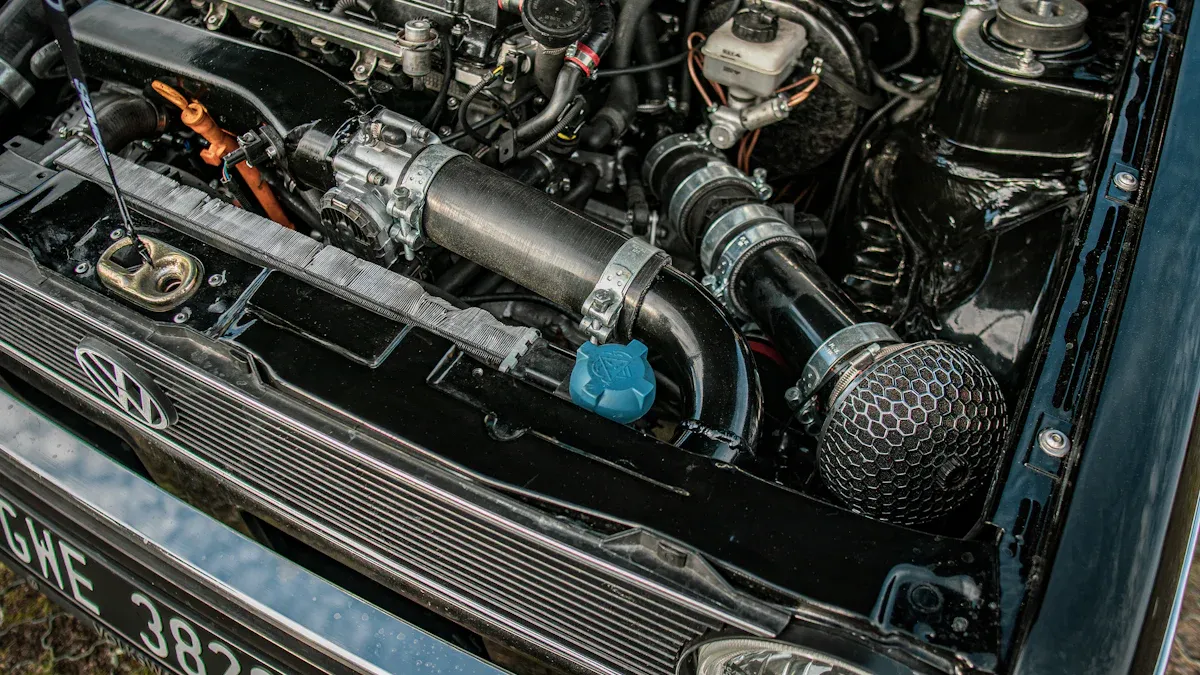
Image Source: pexels
What the Alternator Does
You use the alternator every time you drive your Toyota Corolla. The alternator gets power from the engine and makes electricity. This electricity runs your car's lights, radio, and dashboard. It also keeps the battery charged so your car starts.
The toyota alternator has two main parts. These are the alternator assembly and a voltage regulator. The alternator assembly makes power when the engine is on. The voltage regulator keeps the voltage steady. This stops the battery from getting too much or too little charge. Steady power helps your car work well.
Some Toyota Corolla models have a standard alternator with 80 amps. Other models have high-output alternators that can give up to 320 amps. These high-output alternators use a smaller pulley. They may need special wiring for more power. Most small cars use a standard alternator. The toyota alternator can give extra power for more accessories.
Why Alternator Health Matters
A working alternator is important for your Toyota’s safety. If the alternator fails, you might see dim or flickering lights. Your dashboard, stereo, or windows might stop working. Sometimes, your car will not start or you may hear odd noises.
When the toyota alternator gets old, it cannot give enough power. The battery will drain fast and your car may stall. This can leave you stuck and hurt your battery and other parts. A weak alternator can also turn on warning lights on your dashboard.
Problem When Alternator Fails | What You Might Notice |
|---|---|
Headlights and dashboard lights fade | |
Electrical Accessories Fail | Stereo, windows, or displays stop |
Battery Drains Fast | Car needs frequent jump-starts |
Engine Stalls | Car stops running or will not start |
You keep your Toyota safe by checking the alternator often. Regular checks help you find problems early. This keeps your car safe and helps all electrical parts last longer.
Failing Alternator Signs

Image Source: unsplash
Early Warning Signs
You can notice early signs if your Toyota Corolla alternator is failing. The battery warning light on your dashboard is usually the first sign. This light might look like a battery symbol or say “Gen” or “Alt.” If this light stays on or blinks, your alternator may not charge the battery well. Do not ignore this warning.
Other signs are dim or blinking headlights and inside lights. This happens because the alternator cannot give steady power. You might hear grinding or whining sounds from the engine area. These noises often mean the alternator bearings are worn out. If your car is hard to start or stops while driving, the alternator may not be charging the battery enough. If your battery dies often or you need jump-starts a lot, your alternator could be failing.
Here are the most common early warning signs:
Battery warning light or battery indicator light on the dashboard
Dimming or flickering headlights and interior lights
Unusual grinding or whining noises from the engine
Difficulty starting or stalling while driving
Frequent dead batteries or jump-starts
Bad Alternator Symptoms
If the alternator gets worse, you will see bigger problems. Your battery might die even if it is new. Sometimes, you can jump-start the car, but it stops after you remove the cables. The battery warning light or “Gen”/“Alt” light might stay on. You could smell burning rubber near the engine, which means the alternator belt is slipping or the alternator is too hot. Whining or screeching sounds from the engine are also signs of a bad alternator.
A bad alternator can make the voltage drop too low. When the engine is running, the voltage should be above 13.7 volts. If it is lower, the alternator is not working right. These signs can leave you stuck if you do not fix them soon.
You can check for alternator failure with these steps:
Use a voltmeter to check battery voltage when the engine is off and on.
Look at alternator wires, fuses, and belts for damage or wear.
Do a voltage drop test between the alternator and battery.
Use test tools to check for bad diodes and measure voltage ripple.
Watch the battery warning light when you start the car.
Test alternator fuses for the right voltage and resistance.
Measure charging current output with an inductive ammeter.
Knowing these signs helps you stop bigger problems. If you see any of these symptoms, ask a professional to check your alternator. Acting fast can save money and keep your Toyota Corolla working well. Bad alternators are often caused by worn bearings, broken diodes, or damaged belts.
Extend Alternator Life
Maintenance Tips
You can make your Toyota Corolla alternator last longer with simple habits. Check the charging system when you get big car services. Clean and tighten the battery cables often. This helps the alternator work well and stops power loss. If you see dim lights or a battery warning light, get your alternator checked soon. These signs mean the alternator may not be charging the battery right.
How you drive matters too. Short trips do not let the alternator recharge the battery enough. Try to take longer drives when you can. Hot or cold weather makes the alternator work harder. If you live where it is very hot or cold, check the alternator more often. Keep the alternator and belt clean and dry. Oil or fluid leaks can hurt the alternator and cause early alternator replacement.
Battery Care Of Toyota Alternator
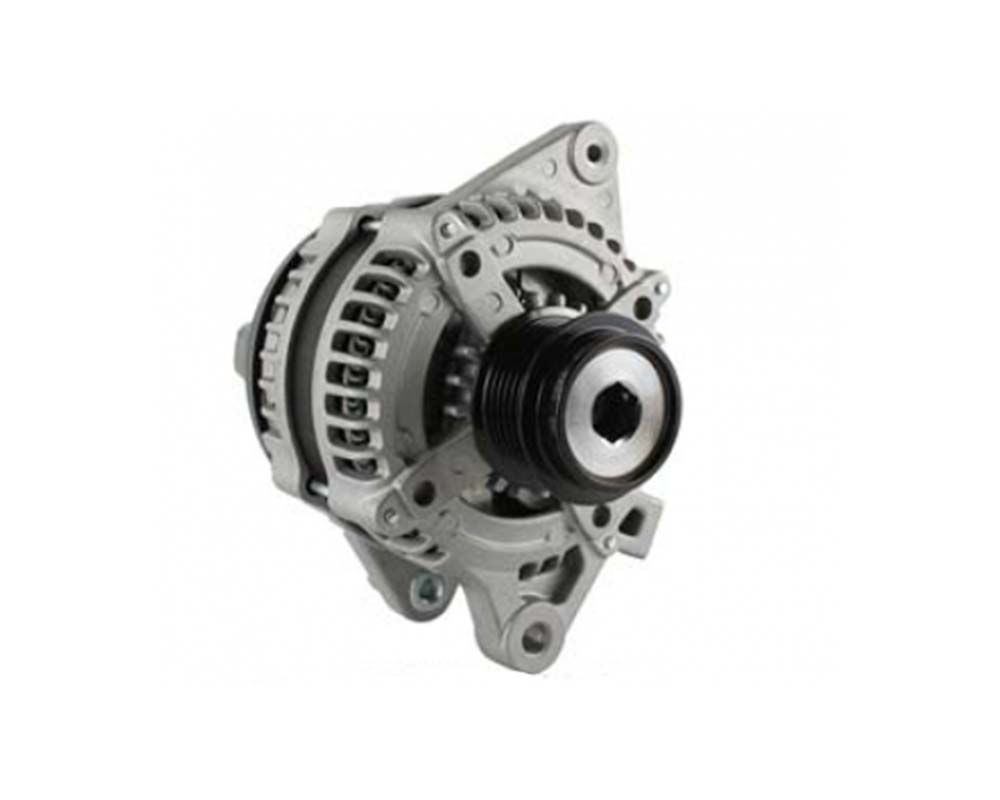
A strong battery helps your alternator and keeps you from needing early alternator replacement. Follow these steps to keep your battery healthy:
Do not use ACC mode for a long time when the engine is off. This drains the battery and makes the alternator work harder later.
Leave your car in Ready mode when parked to keep the 12v battery charged.
Use a smart charger or trickle charger if you do not drive much or only take short trips. This keeps the battery full and helps the alternator.
Turn off connected services and key fobs when you are not using the car. This lowers battery drain and helps the alternator last longer.
If your battery wears out fast, ask your dealer about a warranty replacement. A weak battery can mean you need alternator replacement sooner.
Upgrade to a better or bigger battery if you can. This helps the alternator charge the battery better.
Taking care of your battery means less work for your alternator. You will have fewer problems and wait longer before needing alternator replacement. If you see warning signs like dim lights or a dead battery, do not wait. Get your alternator checked by a professional to keep your Toyota Corolla running well.
The alternator in your Toyota Corolla can last 80,000 to 150,000 miles. How you drive and take care of your car changes how long it lasts. If you check the alternator often, you can find problems early. This helps you avoid expensive repairs. Watch for a battery warning light, weird smells, or odd sounds from the alternator. Use this easy checklist to keep track of your alternator:
Checking the alternator for warning lights on the dashboard.
Listen for whining or screeching noises from the alternator.
Smell for burning rubber near the engine.
Taking care of your alternator saves money and keeps your Toyota Corolla working well.
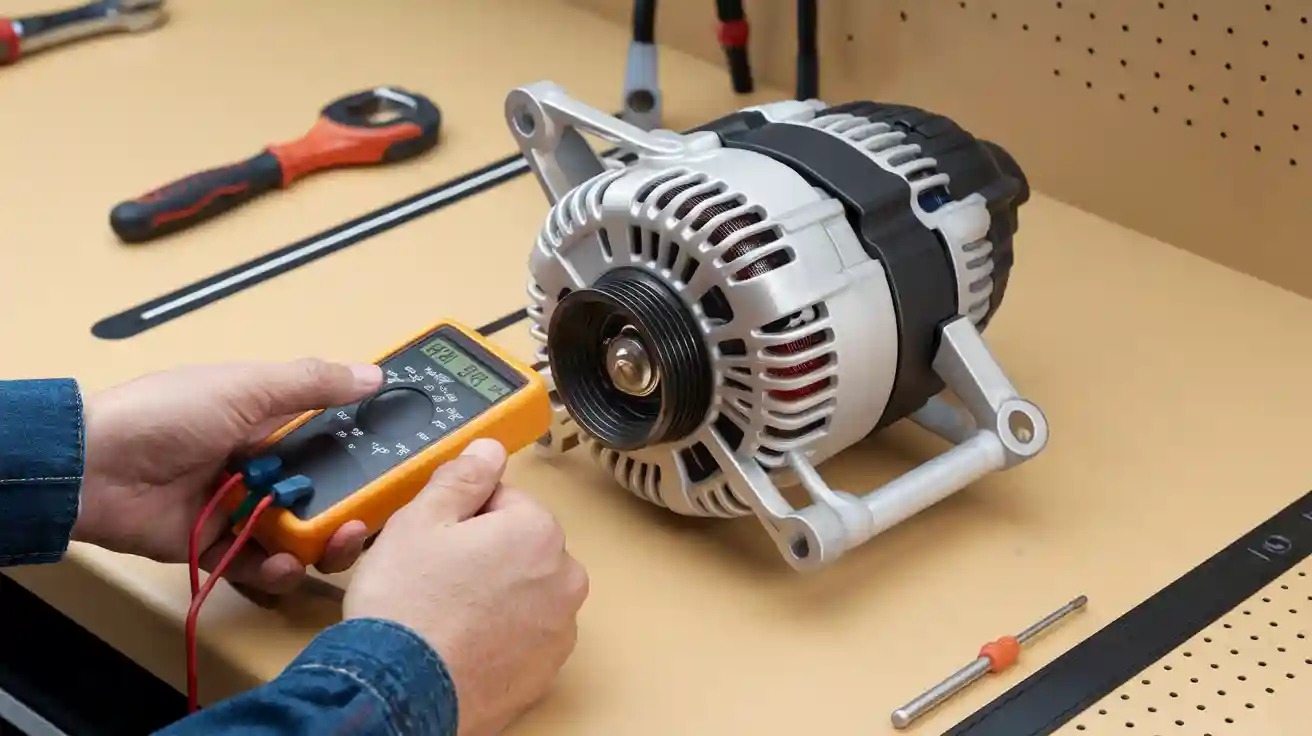
FAQ
How do I know my Toyota Corolla alternator is failing?
The battery warning light might come on, you might hear whining noises, or your headlights could go dim. Your car could stall or require frequent jump-starts. If you notice these signs, have your alternator inspected sooner rather than later.
Is it bad to drive your Corolla with a bad alternator?
It is possible for you to drive for a brief time, but it is not safe. The battery will drain quickly. Your car may stop suddenly. Never neglect a bad alternator.
What is the price to change alternator for Toyota Corolla?
The replacement cost of an alternator likely runs between $400 and $700, parts and labor included. Prices may vary depending on your locati0n and which shop you go to.
Will a new battery make your alternator last longer?
A good battery assists your alternator in doing less work. If you take care of your battery, your alternator will last longer. Replace weak batteries quickly.
What if you don't fix your alternator?
(disregarding an issue with the alternator could leave you stranded). Your car may not start, and you could harm the battery or other electrical parts. Always fix alternator problems early.




